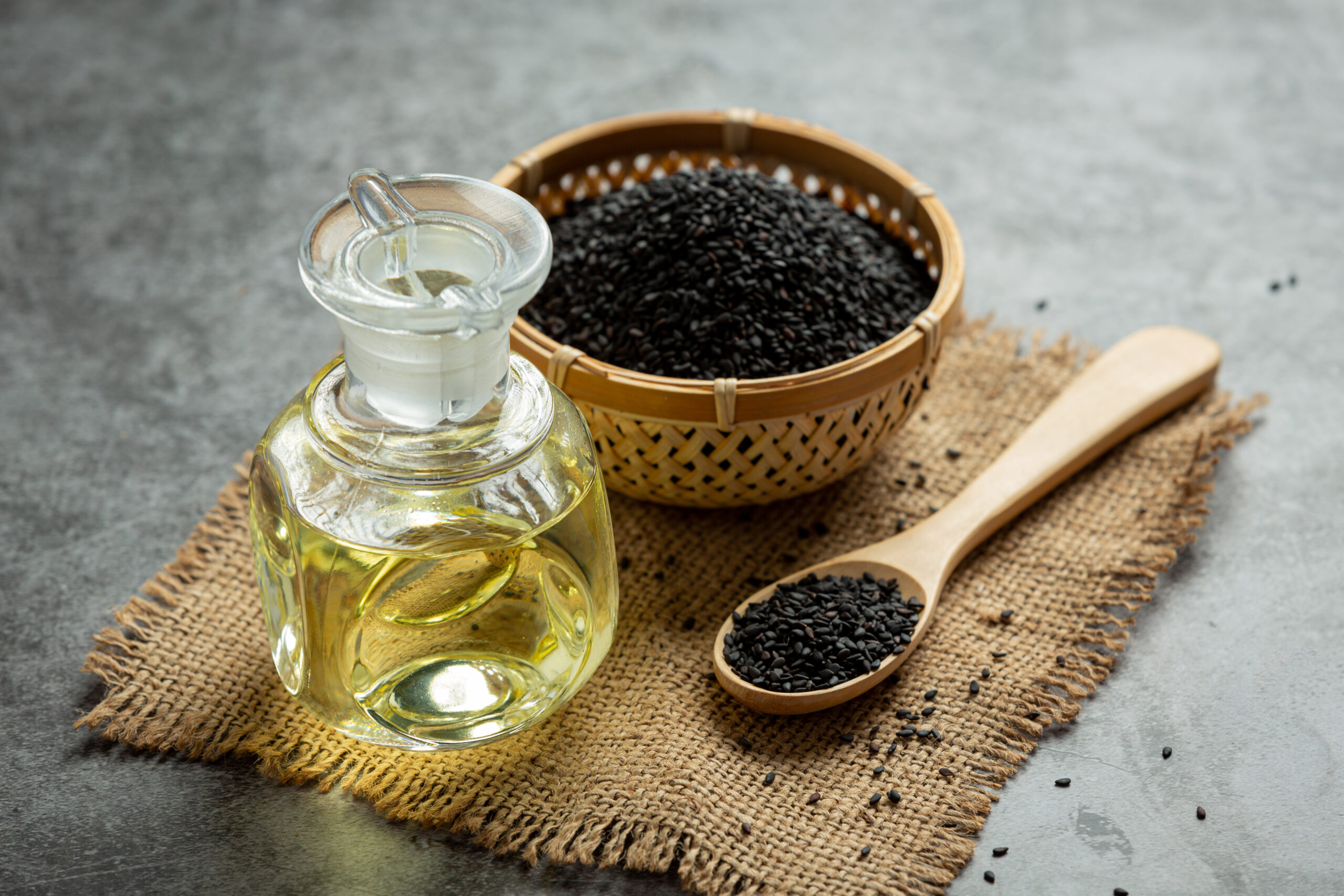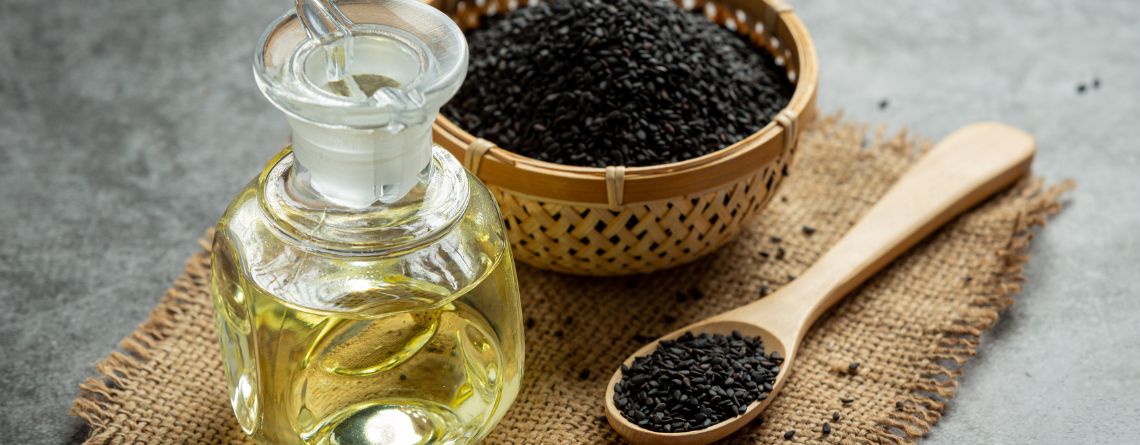8 Science-Backed Benefits of Black Seed Oil: From Diabetes, Cancer, to Skin Health
In a world overflowing with powerful foods, natural remedies, and potent oils, it can be challenging to sift through the information and find what truly works, what doesn’t, what is documented scientifically, and what is safe for human health. One natural herb that has stood the test of time and science is black seed oil.
Known as Kalonji in India and derived from Nigella sativa seeds, this oil is mentioned in religious scriptures, medicinal publications, and scientific research. From the Quran to PubMed, NCBI, and even the National Library of Science and Medicine, some even call it a miracle herb.
Before we discuss what makes it powerful, it is important to mention that no single food or supplement can take away your disease. No food can take away your cancer, help you lose weight, reverse your diabetes, or make your skin or hair look better.
Instead, it plays a supportive role in the intricate system of trillions of cells in the human body. These cells are influenced by our environment, stress levels, emotions, and the foods we consume.
Unhealthy choices lead to chronic inflammation, a key contributor to aging and chronic illnesses. But food can work synergistically and that’s why we look at nature. Black seed oil, when combined with a balanced lifestyle, can be a powerful tool to support overall health and well-being.
Black Seed Oil: Backed by Science
Referred to as a ‘miracle herb’ in the National Library of Science and Medicine, the black seed oil is packed with bioactive compounds like thymoquinone, which offers powerful anti-inflammatory, antioxidant, and therapeutic benefits.
How can we incorporate this into our lives? I know you’re eager to order it and begin using it. However, it’s important to first take the time to listen and understand.

Diabetes and Metabolic Health
Black seed oil demonstrates anti-diabetic properties, helping regulate blood sugar levels and improve insulin sensitivity, making it beneficial for diabetes and pre-diabetes. A meta-analysis published in the Journal of Endocrinology and Metabolism found that supplementation with Nigella sativa significantly reduced fasting blood glucose, HbA1c levels, and insulin resistance in type 2 diabetes patients.
It may help you with fat loss, not directly but by improving your metabolic health. So many people today are struggling with metabolic syndrome. It is a cluster of conditions characterized by high triglycerides, low HDL/good cholesterol, excess abdominal fat, prediabetes/diabetes, and high blood pressure. The amount of complications that a metabolic syndrome can create is serious in the long run.
It can put you on a laundry list of medicines. Remember that this is not a replacement. While you take the medicines your doctor gives you, make lifestyle changes, and introduce these powerful supportive foods, keep your doctor in the loop. Because when your health parameters start to change, your doctor will help you lower your dosages. In our experience of working with patients, we’ve seen how black seed oil can lower people’s blood sugar levels.
Caution: Monitor blood sugar levels closely when introducing black seed oil, to avoid hypoglycemia, especially if on diabetes medications. Always speak to your doctor before trying anything new.
The anti-inflammatory and lipid-lowering effects of black seed oil support heart health. A study in the Journal of Ethnopharmacology revealed that black seed oil helps reduce LDL cholesterol, triglycerides, and blood pressure while improving HDL cholesterol levels. It also helps manage metabolic syndrome, which increases cardiovascular disease risk.
Caution: Ensure to check your systolic and diastolic blood pressure so you don’t go into hypo and once you see a change in your levels, your doctor can adjust your medication as required.
Skin Health
Black seed oil’s anti-inflammatory and antimicrobial properties make it effective for skin conditions like eczema and psoriasis. You can use the Nigella oil directly on the patch of eczema. But always make an informed decision. The information you are reading here is generic. Keep your professionals in the loop. In our experience, it has worked for many of our eczema patients.
A study published in Dermatology Research and Practice found that topical application of black seed oil significantly reduced eczema severity scores in patients. Its high content of thymoquinone helps combat oxidative stress and inflammation, promoting overall skin health.
But that being said, remember bio-individuality. Everyone is different. What works for someone else, does not have to work for you.
Black seed oil, if suitable for your skin type, can improve skin texture and combat acne.
Caution: Always perform a patch test before applying it to rule out any allergies.
Anti-cancer and Anti-tumor
Documented as anti-tumor and anti-cancer, black seed oil plays a supportive role in managing cancers like breast, prostate, and squamous cell carcinomas. While not a standalone treatment, its compounds help reduce inflammation and oxidative stress, which are central to cancer progression.
Research published in Cancer Cell International highlights its potential to induce apoptosis (programmed cell death) and inhibit proliferation in breast, colon, prostate, and other cancer cells. A study in Frontiers in Oncology further supports its role in reducing tumor progression without harming healthy cells.
Reproductive Health
Research suggests that black seed oil can enhance sperm count and motility in men and support hormonal balance in women. A study in Phytotherapy Research found that Nigella sativa improves reproductive parameters in infertile men. Additionally, it may alleviate symptoms of PCOS by supporting metabolic and hormonal health.
Energy and Fatigue
Suppose you’re a senior citizen who is low on energy. Scratch that. I shouldn’t just mention senior citizens because sometimes some of my senior clients are way more energetic than people in their 20s and 30s. If you have chronic fatigue syndrome, are low on energy, or are fatigued, despite having good D3 and B12 levels, you may want to experiment with this.
Black seed oil may provide relief by boosting energy and reducing oxidative stress. A study in Nutrition Journal highlighted its role in improving energy levels and combating fatigue in patients with conditions like fibromyalgia.
Organ Health
Black seed oil is also documented to support liver and kidney function, essential for cleansing and overall health. It aids digestive health and is shown to protect the liver and kidneys from oxidative damage. A study in the International Journal of Molecular Sciences confirmed its hepatoprotective and nephroprotective effects, especially in individuals exposed to toxins or medications that strain these organs.
Arthritis and Joint Pain
The anti-inflammatory effects of thymoquinone make black seed oil beneficial for arthritis and joint pain. A randomized controlled trial published in Planta Medica showed significant pain relief and improved mobility in patients with rheumatoid arthritis. You can massage it onto joints or mix it with nutmeg oil for topical relief. A mix of black seed oil and nutmeg oil has worked beautifully for many patients with arthritic and joint pain flare-ups.
Important points to remember
Kalonji seeds are also available across the world. In India, people put them in their rotis, breads, and different mixes like podis. You can do that as well but to reach the therapeutic value and impact on your conditions, I recommend going with black seed oil.
Some people choose to consume seeds or capsules. But again, it will not give you the therapeutic value that black seed oil can. You may have to consume large quantities of seeds or capsules to reach that dosage point, which is anywhere between 2.5 to 4 ml in safe studies. If you go above 5 ml, studies show that it can cause nausea, among several other side effects.
So remember: More doesn’t mean better. Just because you know black seed oil is great and you think, “Luke said to take 2.5 ml, let me take 10 ml and maybe I’ll feel better.” Don’t overdo it. It can cause you harm. Everything is good in moderation and as per science and recommended dosages.
How to Use Black Seed Oil
- My favorite way of using it is to get cold-pressed black seed oil. It’s available all over the world.
- Choose cold-pressed and organic black seed oil as far as possible. Ensure it is not refined because it gets oxidized in the refining process.
- Always ensure it says edible because you also get black seed oil for your skin and hair. The best part of choosing cold-pressed edible black seed oil is that you can consume it and also use it on your skin and hair.
- I would recommend that you start with a dosage of 2 ml and then you go to 2.5 ml. Now professionally we have our patients going up to maybe 3, 4, or 5 ml but that is because we consult with them. We know their total consumption of fats from the other foods and at the end of the day, this is still an oil or fat (even if it is healthy). The point is don’t just blindly do it.
- Start with small changes. Add 2 ml of black seed oil to your salads or smoothies.
- Do not cook it. It’s an oil that is supposed to be consumed raw.
- It’s a bitter-tasting oil. So if you are having it plain, you can even follow it with maybe a teaspoon of honey.
The Bigger Picture: Integrate, Don’t Isolate
All you need to do is add it to your lifestyle with the right mindset and let it work synergistically with the other foods in a supportive role for your conditions.
And the beauty is that it works with almost every health problem documented. I also want to take this opportunity to empower each of you to start doing your research.
Go straight into PubMed, NCBI, or the National Library of Science and Medicine and start reading up. Enlighten yourself with the beauty that nature holds.
If you’re on any special medication, treatment, or part of clinical trials for your particular disease, you must keep your doctor in the loop to see if there could be any contraindications to adding black seed oil.
Everything has to be done the smart way and the right way. But if you don’t have any of those conditions, start adding about 2.5 ml to 3 ml to your daily routine and see what happens. Don’t expect a miracle to happen overnight, although we’ve seen those kinds of miracles. Try this. If it works out for you, great. And if it doesn’t, don’t lose heart.
Everyone is different. Black seed oil is not a magic potion, but it plays a powerful supportive role. Pay attention to other aspects of your health like nutrition, movement, sleep, emotional wellness, and breathwork. Start small, stay consistent, and keep winning.
Disclaimer: The information provided here is for educational and informational purposes only. It is not intended as a substitute for professional medical advice, diagnosis, or treatment. Always consult your healthcare provider before making changes to your nutrition, lifestyle, or healthcare regimen, especially if you have existing medical conditions or are taking prescribed medications.
ALSO WATCH: From Diabetes to Cancer to Skin Issues: Explore the Benefits of Black Seed Oil
If you’re struggling to take the first step towards managing your health, we help you find a way.
Reach out to us at 1800 102 0253 or write to us at consults@lukecoutinho.com.
|
From a pimple to cancer, our You Care Wellness Program helps you find a way Talk to our integrative team of experts today 18001020253 |










Leave a Reply